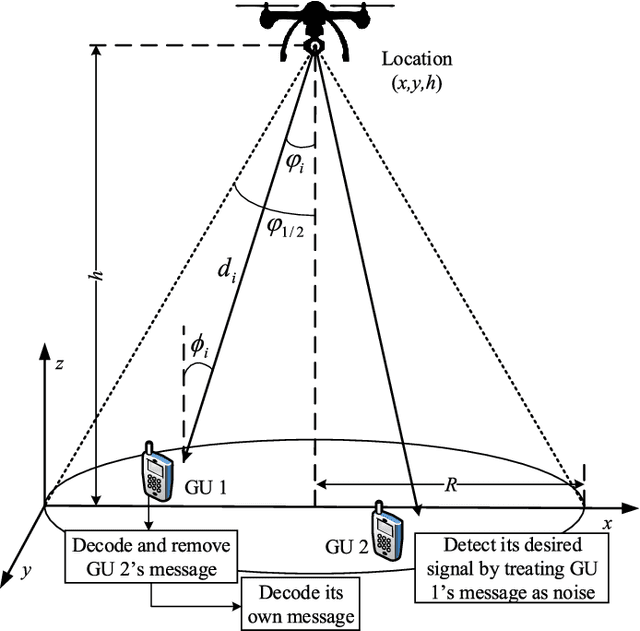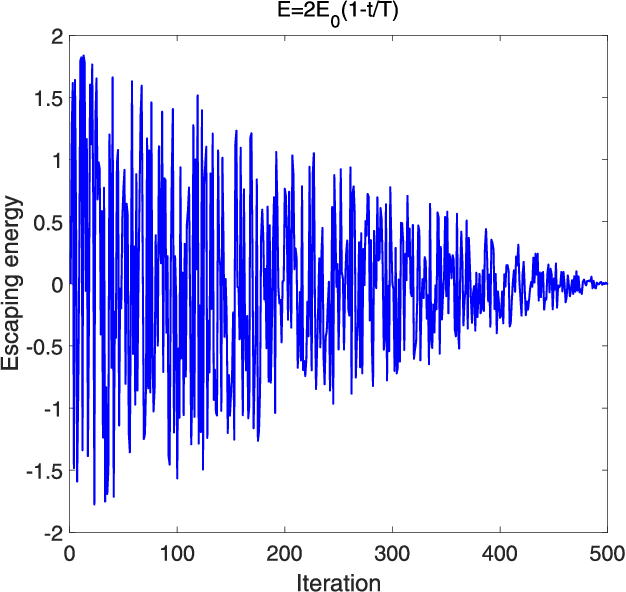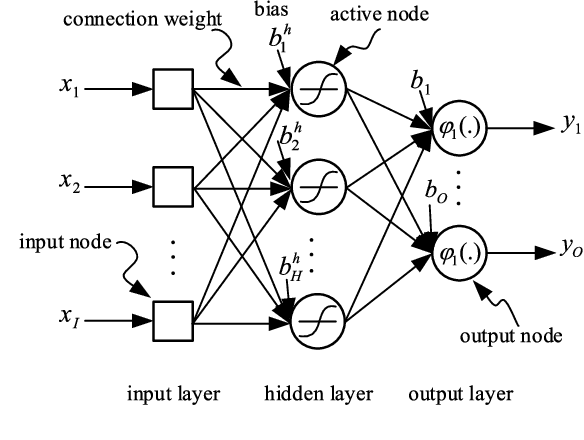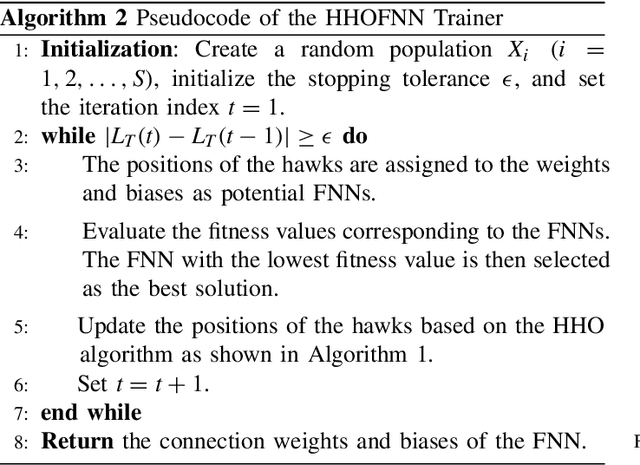Sum-Rate Maximization for UAV-assisted Visible Light Communications using NOMA: Swarm Intelligence meets Machine Learning
Paper and Code
Jan 10, 2021



As the integration of unmanned aerial vehicles (UAVs) into visible light communications (VLC) can offer many benefits for massive-connectivity applications and services in 5G and beyond, this work considers a UAV-assisted VLC using non-orthogonal multiple-access. More specifically, we formulate a joint problem of power allocation and UAV's placement to maximize the sum rate of all users, subject to constraints on power allocation, quality of service of users, and UAV's position. Since the problem is non-convex and NP-hard in general, it is difficult to be solved optimally. Moreover, the problem is not easy to be solved by conventional approaches, e.g., coordinate descent algorithms, due to channel modeling in VLC. Therefore, we propose using harris hawks optimization (HHO) algorithm to solve the formulated problem and obtain an efficient solution. We then use the HHO algorithm together with artificial neural networks to propose a design which can be used in real-time applications and avoid falling into the "local minima" trap in conventional trainers. Numerical results are provided to verify the effectiveness of the proposed algorithm and further demonstrate that the proposed algorithm/HHO trainer is superior to several alternative schemes and existing metaheuristic algorithms.
 Add to Chrome
Add to Chrome Add to Firefox
Add to Firefox Add to Edge
Add to Edge